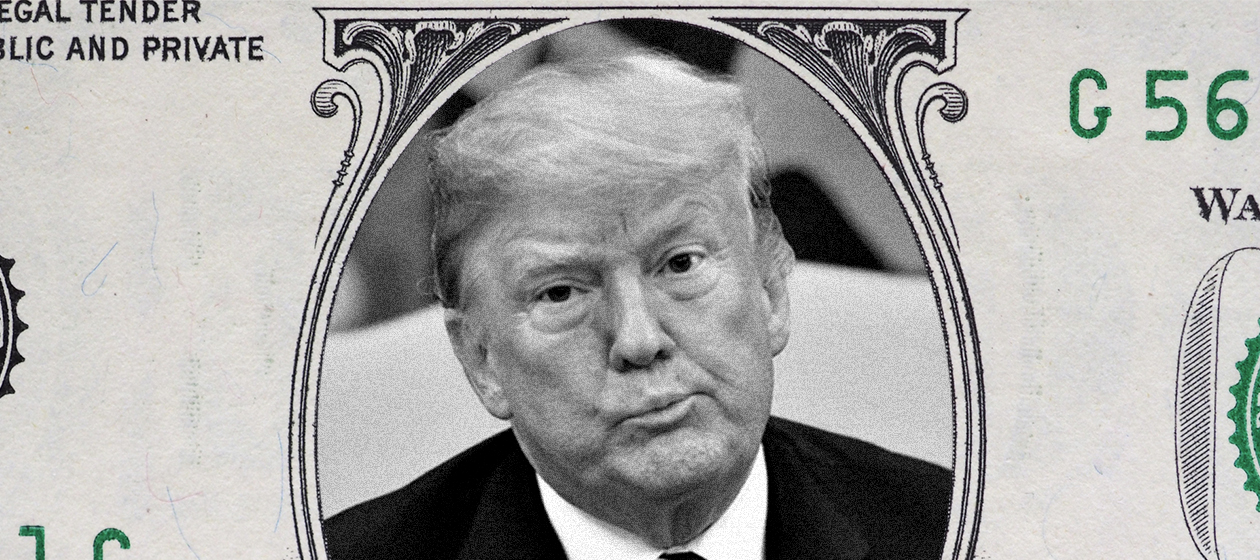The trouble with Trumponomics
Trump's attacks on NAFTA show how his inability to absorb information and update his prior thinking leads to bad policymaking


A free daily email with the biggest news stories of the day – and the best features from TheWeek.com
You are now subscribed
Your newsletter sign-up was successful
The North American Free Trade Agreement has been a nice little trade deal for the United States. But now it's in trouble.
Although the United States has struck a new agreement with Mexico, negotiations seem at an impasse with Canada. At his rambling, neverending press conference Wednesday, President Trump again threatened steep tariffs on Canadian car exports to America if no new deal is reached. One big sticking point — besides his obvious dislike for Canadian Prime Minister Justin Trudeau and Foreign Affairs Minister Chrystia Freeland — is Canada's unwillingness to give the U.S. more access to its dairy market. "I don't like NAFTA," Trump said. "I've never liked it. It's been very bad for the United States. It's been great for Canada, great for Mexico."
That Trump hates NAFTA so much — he's repeatedly blasted it as the"worst trade deal" in American history — and has so badly bungled its updating says a lot, unfortunately, about the nature of Trumponomics and the Trump presidency. When the president talks about the trade deal in such apocalyptic terms, he's really presenting an alternate dystopian reality. This is a common tactic of populist politicians who need to tell a story of elite incompetence in order to justify their electoral argument.
The Week
Escape your echo chamber. Get the facts behind the news, plus analysis from multiple perspectives.

Sign up for The Week's Free Newsletters
From our morning news briefing to a weekly Good News Newsletter, get the best of The Week delivered directly to your inbox.
From our morning news briefing to a weekly Good News Newsletter, get the best of The Week delivered directly to your inbox.
The facts, however, are that since the agreement took effect in 1994, regional trade has more than tripled to over $1 trillion. A Congressional Budget Office research review concluded that NAFTA likely gave a modest boost to U.S. growth and productivity with little significant impact on total employment either way. For individual sectors such as autos and retail, the agreement has been key to maintaining global competitiveness. And if you like drinking fresh raspberry smoothies in the dead of winter, you can thank NAFTA.
In other words, you shouldn't trust Trump's view of NAFTA any more than his view of the broader American economy. Recall that candidate Trump said America had become a "third world" country in recent decades. As he told The Washington Post, "I think we were a very powerful, very wealthy country. And we're a poor country now." Of course, Trump now claims the U.S. economy is "great and vibrant" thanks to his tax cuts, deregulation, and infectious can-do attitude.
But the American economy in 2018 isn't a whole lot different than it was in 2016 amid a lengthy expansion after the Great Recession, an upswing that continues today. And it was hardly a socialist hellhole back then. Indeed, a new "Economic Freedom of the World" report from the Fraser Institute ranks the American economy in the top 10 globally in terms of how much its policies and institutions "are supportive of economic freedom." But don't thank Trump for this. The underlying data is all from 2016, the final full year of the Obama presidency. Moreover, the U.S. score has been rising steadily since 2011 after a previous decade-long decline. We'll see if that improvement continues under Trump given the index's criteria is "freedom to trade internationally."
Trump's attacks on NAFTA also show how his inability to absorb information and update his prior thinking leads to bad policymaking. Recall that Trump withdrew the U.S. from the Trans-Pacific Partnership shortly after his inauguration. Yet one key thing that the TPP did was update NAFTA, including the dairy issue that Trump thinks is evidence Canada is ripping off America. Had the U.S. joined the Pacific trade deal, it would have gained greater access to the Canadian market.
A free daily email with the biggest news stories of the day – and the best features from TheWeek.com
But let's be real: It's highly unlikely Trump had any idea about that or the other NAFTA upgrades when he decided the U.S. would abandon the agreement. For him, the only key detail was that TPP was supposed to be a hallmark of the Obama administration and its geopolitical pivot toward Asia. And rather than join the TPP and use it to form a united front against China's predatory state capitalism, Trump is wasting valuable time and global political capital renegotiating a deal that effectively had just been renegotiated. Same goes for the revised free-trade deal with South Korea that Trump signed on Monday. Trump called it "historic." But it is really little more — at best — than a minor reworking of the existing agreement. So another waste of time. If that's the worst we end up saying about the new NAFTA — or whatever Trump would call it — we'll be lucky. Enjoy those fruit smoothies while you can.
James Pethokoukis is the DeWitt Wallace Fellow at the American Enterprise Institute where he runs the AEIdeas blog. He has also written for The New York Times, National Review, Commentary, The Weekly Standard, and other places.
